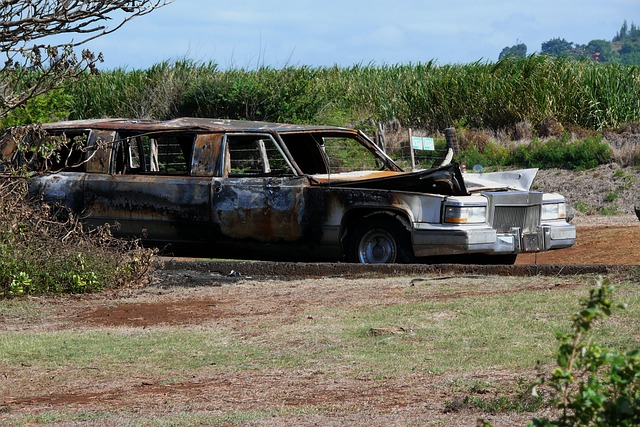

Trouble in Paradise
As Americans, we are often blithely unaware that other people hate us. When I backpacked around Europe in the mid 1990’s, my buddy and I seriously considered sewing Canadian flags onto our packs to avoid the stigma associated with most Americans. Throughout the rest of the world, we are generally considered boorish, pretentious, and witlessly rude. And from everything I’ve seen in my years of nomadic adventures, they’re not wrong. But as bad as that might be, imagine what people think of us in the regions incorporated into the United States during the Monroe Doctrine-era expansion of the 19th and early 20th centuries. While we may teach about the bombing of Pearl Harbor in our American History classes, we fail to include just how Hawaii got to be a part of the United States in the first place. We travel to the Hawaiian Islands for our family vacations heedlessly unaware that we annexed Hawaii in 1898, stealing it from the local rule that had been in place for hundreds of years, largely because we wanted a military presence to safeguard our interests in the Pacific. Rarely is the tale told of how we turned one of their most sacred islands, Molokai, into the Makanalua Bombing Range, using it for target practice and leaving behind literally hundreds of unexploded shells requiring years of diligent restoration. Discover that, and you might just think many native Hawaiians must really hate us. And many of them do. But in the wake of the tragic fires that spread across the island of Maui and destroyed the city of Lahaina, that animosity is about to get a whole lot worse.
It has often been said that there are two Hawaii’s: one that is a transcendent tropical paradise that caters to guests from around the world, providing them with a luxury rarely found in such a picturesque setting. The other is the real Hawaii, the folks who struggle to get by and afford the inflated cost of living expenses Hawaii is known for as they work two jobs, both often spent pandering to the tourists and jet setters who comprise the first category. The folks in the first group are often indifferent to the plight of the latter, but you sure as hell better believe that the locals are all too familiar with the former. They are the ones that bring them room service, clean their rooms, pour them cocktails, and drive them to the airport. Native Hawaiians are given a constant reminder of the land that was stolen from them in every preposterous mansion owned by Oprah or Jeff Bezos and every luxury hotel that lines the beachfront that once belonged to them and their communities. Western civilization has brought with it a thriving tourist-based economy, but it has done so at quite a price, and given that that price includes giving up the paradise that was once theirs alone for a profit margin they rarely get to share in, it must often appear to be a Faustian bargain where the devil gave them little in return for their souls.
The Native Hawaiians have a term for non-native white people: haole. And if you’ve been to Hawaii and have heard the term used, you know it isn’t pleasant. And if you have been to Hawaii, and haven’t heard the term, let’s just say you definitely belong in the Tourist Hawaii camp and that the term was used towards you without you knowing it. Of course Hawaiins resent our being there and the history that has led to the circumstances where they can’t even afford to live and own property on their own islands while wealthy white people come in and buy up property for second or third homes. They have every right to feel that outrage and discontent. But in the horrific aftermath of last week’s fires, that antagonism is only going to be exacerbated.
 That’s because even after those devastating wildfires, us haoles still didn’t get it. Despite being urged by locals to please not come or go home, many visitors stayed after the fires and some have even flown in for their vacations SINCE the fires erupted. I don’t think even Andrew Dice Clay could be that insensitive if he tried. Worse yet, vacationers have lodged complaints that their horse riding trips and beach excursions have been cancelled, with one Wailea Four Seasons guest asking if he could keep his dinner reservation in ravaged Lahaina. Um sir, the smoke you’re smelling is not coming from the grill. This Tourist Hawaii just doesn’t get what the other Hawaii is going through, and that lack of empathy and understanding can only fuel the already simmering resentment towards a group of people who strut around like they own the place, largely because they do.
That’s because even after those devastating wildfires, us haoles still didn’t get it. Despite being urged by locals to please not come or go home, many visitors stayed after the fires and some have even flown in for their vacations SINCE the fires erupted. I don’t think even Andrew Dice Clay could be that insensitive if he tried. Worse yet, vacationers have lodged complaints that their horse riding trips and beach excursions have been cancelled, with one Wailea Four Seasons guest asking if he could keep his dinner reservation in ravaged Lahaina. Um sir, the smoke you’re smelling is not coming from the grill. This Tourist Hawaii just doesn’t get what the other Hawaii is going through, and that lack of empathy and understanding can only fuel the already simmering resentment towards a group of people who strut around like they own the place, largely because they do.
Which must really chap the asses of many a native Hawaiian when they stop to consider that land ownership, in its modern context, didn’t even exist in Hawaii until James Cook brought it with him. Nearly 40 years ago, at statehood, Hawaii residents outnumbered tourists by more than 2 to 1. Currently, tourists outnumber residents by 6 to 1; and even further outnumbering Native Hawaiians by 30 to 1. All those hotels and luxury estates aren’t owned by natives; they belong to outside interests who have gobbled it up and priced locals out. The Japanese alone 50% of the hotels and 40% of the commercial land in the state. The only hope for locals was that they owned their own little piece of refuge, a small slice of the paradise that once all belonged to them.
But of course corporate vultures are already swooping in, looking to take advantage of the tragedy of others. In the ultimate display of schadenfreude, developers are lining up to quick sale these properties and buy them out from displaced families who cannot afford to wait and rebuild. Instead of these hotels telling their pampered guests to fuck off and go home so that they can open up their rooms to the unfortunate folks upon whose backs they have made their enormous profits, they just keep on operating as if nothing has even happened just as long as it doesn’t hit there bottom line.
Instead of compelling these hotels to be responsible community partners or setting aside a certain percentage of Maui’s real estate for native Hawaiian ownership only, putting strict caps on what portion of the island can be held by outside interests, the latter Hawaii will go on pretending as if the real Hawaii does not exist. And the rift between them will only grow wider.
Steven Craig is the author of the best-selling novel WAITING FOR TODAY, as well as numerous published poems, short stories, and dramatic works. Read his blog TRUTH: In 1000 Words or Less every THURSDAY at www.waitingfortoday.com


